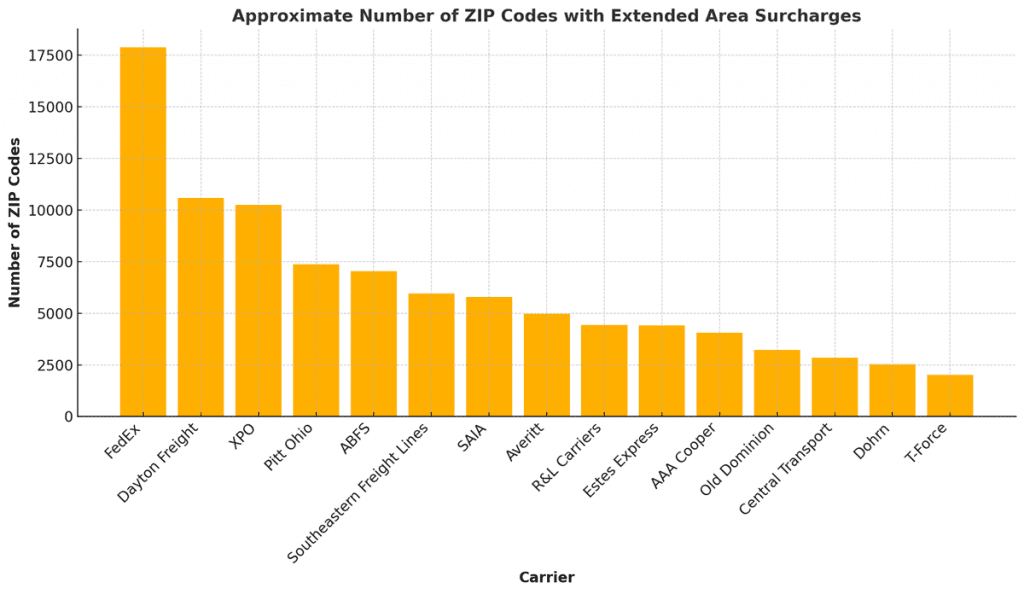If you’re managing LTL shipments, you’ve likely encountered unexpected charges buried in your freight invoices.
One of the most overlooked—and increasingly common—cost drivers is the zip code-specific extended area surcharge also known as a high-cost delivery area surcharge. These charges are applied when a shipment is destined for areas carriers designate as more costly or complex to service.
At Hatfield & Associates, we’ve developed a solution to help our clients get ahead of these fees. Our Transportation Management System (TMS) now detects zip code-specific extended area surcharges before the shipment is tendered—ensuring complete cost visibility and eliminating surprises on the backend.
What Are Zip Code-Specific Extended Area Surcharges?
Major LTL carriers maintain internal lists of ZIP codes they deem more expensive to service. These surcharges are based on factors such as:
Geographic distance from distribution hubs
Limited delivery windows or congestion
Local infrastructure limitations
Unlike general rate increases, these are tied directly to the destination ZIP code—and they often vary significantly by carrier. The charges are typically flat-fee surcharges applied per shipment and may be grouped into tiers based on severity or difficulty of access.
Carrier Comparison: ZIP Codes With Extended Area Surcharges
The scale of these surcharges is significant. The chart below highlights the approximate number of ZIP codes each major LTL carrier applies Extended Area surcharges to, based on current tariff data:

Why These Charges Are Often Missed
Many Transportation Management Systems do not alert users to zip code-specific extended area surcharges during rate quoting or shipment entry. This lack of visibility can result in:
Inaccurate cost forecasting
Unexpected accessorial charges
Misalignment between quoted and invoiced rates
Because extended area ZIPs are updated regularly and vary by carrier, staying current manually is a challenge for most shipping teams.
How Hatfield’s TMS Solves This
Hatfield & Associates’ TMS now includes built-in logic to identify and flag high-cost ZIP codes in real time.
How it works:
Dynamic ZIP Code Validation: Every destination is checked against the most recent carrier surcharge databases.
Pre-Shipment Notifications: Users are alerted at the point of shipment entry or rate shopping if a surcharge will apply.
Post-Shipment Reconciliation: Our freight audit system verifies final charges against expected fees and flags discrepancies for review.
This proactive approach ensures shippers are not caught off guard by extended area charges that appear only after delivery.
Improved Visibility. Better Control.
By identifying these surcharges before shipment, you can:
Quote freight costs more accurately
Avoid unexpected invoice discrepancies
Make smarter routing and carrier selection decisions
Improve communication with customers around true delivery costs
Learn More
Zip code-specific extended area surcharges are becoming more common—and more expensive. Hatfield & Associates can help you take control of this growing cost driver before it erodes your margin.
👉 Visit us at https://hatfieldandassociates.com/contact/ to schedule a demo and learn how our TMS flags high-cost ZIPs before you ship.



